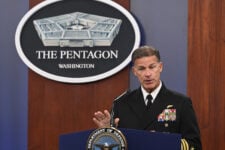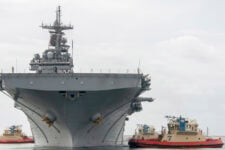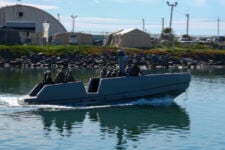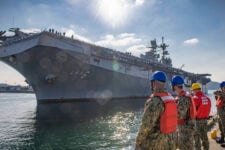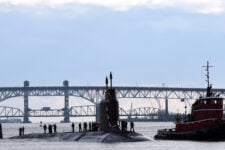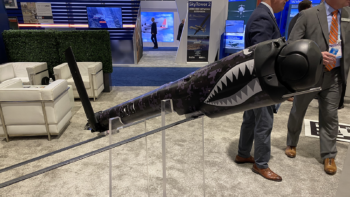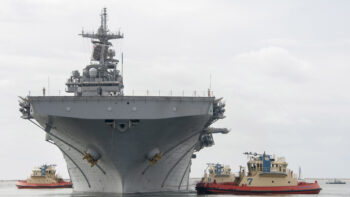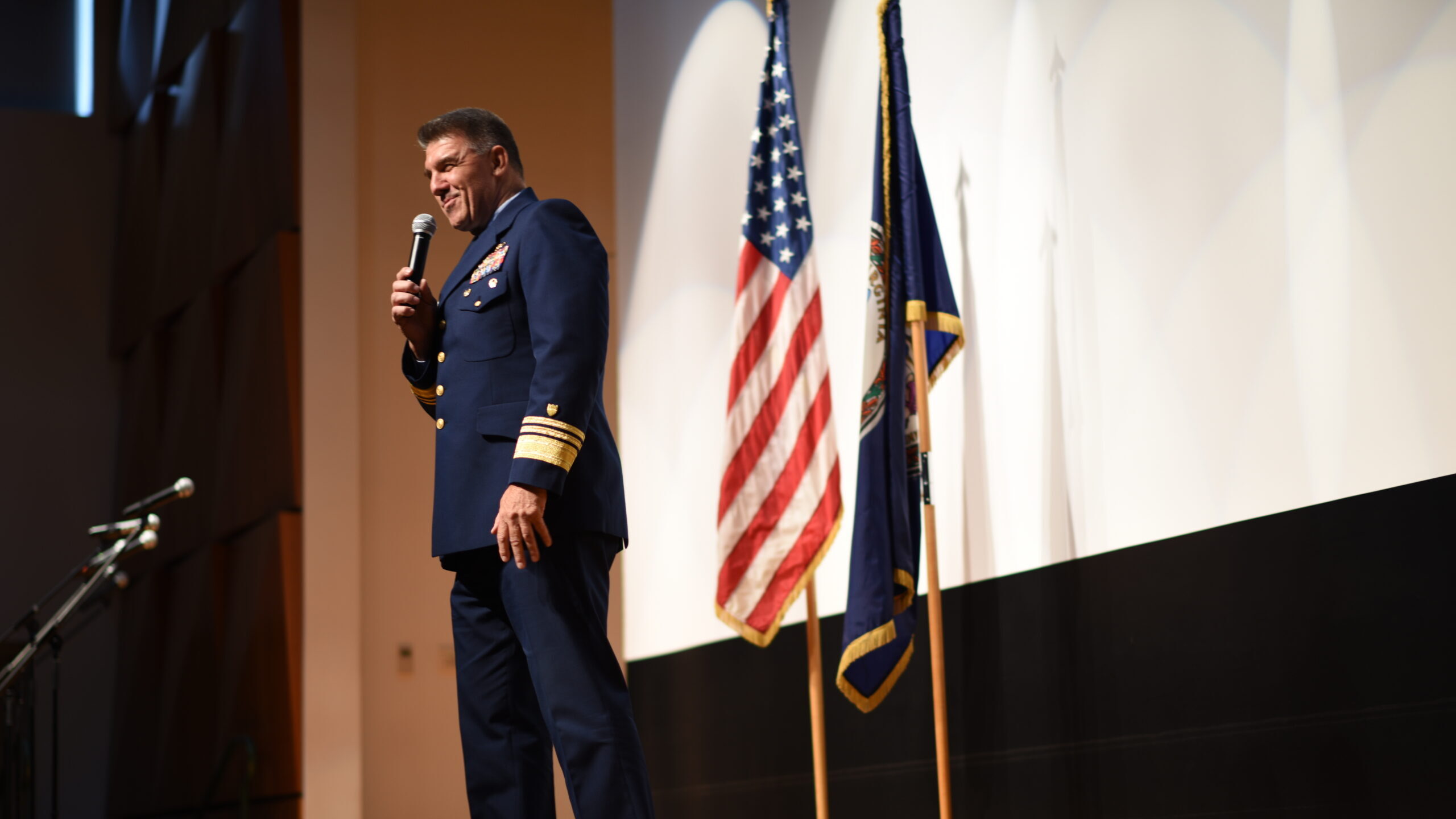
Adm. Karl Schultz, commandant of the US Coast Guard, speaking at an event in 2017 before becoming a four-star service chief. (U.S. Coast Guard photo by Petty Officer 2nd Class Adam Stanton)
WASHINGTON: Adm. Karl Schultz, commandant of the US Coast Guard, said today he would give his “full-throated” support for the US to back the United Nations Convention on the Law of the Sea, but acknowledged that conversation must be driven by policymakers.
“I would offer my full-throated support for the ratification. I think that needs to start though, probably out of the White House or out of the Senate Foreign Relations Committee,” the admiral told an audience at a Navy League event.
UNCLOS, also called the Law of Sea Treaty, is a 63-year-old international agreement agreed to by more than 160 nations that establishes a legal framework for how maritime vessels behave while transiting international waters. The debate about whether the US ratifies UNCLOS, or formally becomes a party to the treaty, is a sporadic issue among US lawmakers.
On paper, America has never ratified UNCLOS, despite taking part in the treaty’s creation. But in practice US-flagged ships generally abide by its rules. The debate boils down to an issue of independent power.
Proponents of ratification argue that by formally joining the treaty, the US can exert pressure on adversarial nations to do the same. Opponents argue ratifying the treaty would handicap America’s naval forces by creating restrictions that other nations may not respect.
Sen. Angus King, I-Maine, on Wednesday asked Adm. Christopher Grady, President Joe Biden’s nominee to become vice chairman of the Joint Chiefs of Staff, if he supports the US ratifying UNCLOS.
“I do, senator,” the Navy admiral responded.
Through written policy questions, lawmakers sought Grady’s opinion about the impacts accession to the treaty would have on either the Pacific or Arctic regions, where the US has routine, and sometimes tense, interactions with rival vessels from China and Russia, respectively.
“While we do not take sides in the various territorial disputes in the South China Sea, we do have a national security interest in ensuring disputes are resolved peacefully, that countries adhere to the rule of law, and that all nations fully respect freedom of the seas,” Grady responded in writing. “However, we undermine our leverage by not signing up to the same rule book which we are asking other countries to accept.”
Regarding the Arctic, the admiral wrote that the treaty’s procedures would be beneficial for the US to establish the outer limits of its extended continental shelf (ECS) in the Arctic ocean.
“The United States has a significant ECS in the Arctic Ocean and is also working to secure international recognition of its ECS. We should put our rights on a treaty footing and more fully and effectively interact with the other seven Arctic Council nations who are parties to the Convention,” Grady wrote.
Defense companies keep up momentum on share repurchases, despite Navy leader’s criticism
Capital Alpha Partners found that buy back amounts at defense contractors were higher this financial quarter for all but only four others since March 2011.




